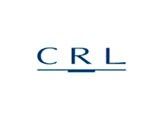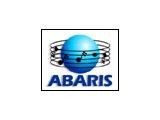PAGE CONTENTS
Objectives
The distribution of digital products over the Internet to consumers is, today, severely limited by the bandwidth restrictions imposed by the “last mile” copper connections from the telephone to the home. While many e-commerce organisations claim to “sell” over the Internet, in reality, most only accept orders. Satellite multicasting offers providers of digital content – be it video, audio, software or multimedia files – the ability to deliver high bandwidth content directly into the home.
By establishing an e-commerce Internet platform, linking content providers with registered consumers, satellite multicasting offers far-sighted organisations the opportunity to develop today the business processes of the future.
The ABARIS project will establish such a platform – a community comprising content providers and end users – focusing initially on the delivery of CD quality audio products. ABARIS will enable consumers to order a wide range of music products from an easily accessible World Wide website. Following payment and copyright clearance these products will be multicast to consumers, using the ASTRA-NET satellite communications service.
ABARIS will multicast music products to customers who are equipped with a computer connected to a standard satellite TV dish antenna. Following reception, each track may be played using a multimedia PC or written to a CD for use in a standard home or car hi-fi system. The music encryption scheme employed by ABARIS will protect artist’s and composers rights by preventing unauthorised performances or recordings.
Avanti’s partners in the project include V2 Music Group, a leading independent record company; National Research Group which undertakes world-wide market research into entertainment products and Central Research Laboratories – a leader in the development of advanced digital intellectual property management technologies.
Challenges
ABARIS faces a number of conflicting requirements for digital product delivery arising from, on the one hand, the desire of the consumer to have virtually instantaneous download, and on the other, from the content provider who wishes to ensure economically efficient distribution of his products. Thus, while each consumer desires individual, on-demand delivery incurring high satellite communications costs in the process, the content provider, who ultimately pays for the satellite bandwidth, would prefer to see a single download reaching hundreds or thousands of customers using a scheduled multicast approach. Recognising the economic importance of this conflict, a centrepiece of the ABARIS Project will be the investigation of the trade-off between the following two performance requirements:
- Product delivery should commence as soon as possible after completion of a consumer’s order and payment verification;
- Product delivery should commence once as large a number of possible of orders for the same product have been placed.
The problems of product delivery will be solved within the ABARIS Project by use of an “Intelligent Scheduler” which will match user orders with satellite and economic resource constraints to obtain an optimum delivery strategy.
Plan
The ABARIS Project is focused on the execution of a comprehensive demonstration of an advanced retail internet service. To this end, the project addresses the complete range of issues which are important for a realistic assessment of the prospects for a commercially viable service, beyond the end of this ESA project, to be made. These include:
- technical,
- commercial,
- legal, and;
- social issues.
Considerable effort is focused on the end-to-end business processes employed by the ABARIS Project. A significant proportion of the effort associated with the Project is expended defining novel business processes, carrying out pilot testing and undertaking evaluation and commercialisation planning.
In order to focus efforts on well-defined goals and enable progress to be readily monitored, the ABARIS Project will be conducted in three phases:
- Phase 1: ABARIS Concepts;
- Phase 2: ABARIS Implementation;
- Phase 3: ABARIS Demonstration.
It is anticipated that these phases will require an elapsed time of 15 months to complete. The first two phases will overlap to some extent, due to the extended review of commercial and legal issues, which do not impinge directly on the implementation of the ABARIS system, but are required for the business planning activities which take place towards the end of the project. The second and third phase are conducted in sequence, with no overlap anticipated.
Together, the attention paid to technical, business and sociological aspects of the ABARIS Project will ensure a firm foundation is laid on which a truly commercial service can be built following completion of this ARTES 3 contract.
Current Status
The ABARIS Project ran from 20th April 1999 until April 2000. The trial phase included a community of 75 users and lasted for about 5 months. The trial has already successfully demonstrated the distribution of music from V2 Music Group’s stable of artists, the distribution of music videos and multimedia products. The project is now complete. A final report is available within the Project Documentation area of this website (requires a password).
Companies


